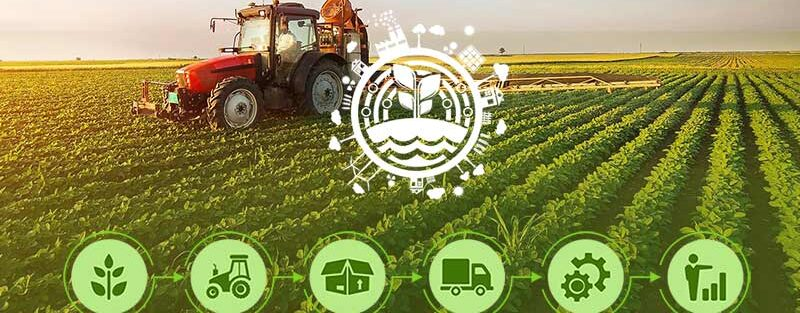Agriculture is the backbone of many African economies, employing millions of people and contributing significantly to the continent’s GDP. However, the sector faces numerous challenges, including climate change, soil degradation, and limited access to information, finance, and markets. Digital extension services have emerged as a potential solution to these challenges, providing farmers with access to critical information, advice, and support. In this article, we will explore the current state of agricultural digital extension in Africa, its benefits, challenges, and opportunities for improvement.
What is Digital Extension?
Digital extension refers to the use of digital technologies, such as mobile phones, computers, and the internet, to provide farmers with access to agricultural information, advice, and support. This can include a range of services, including:
- Mobile-based advisory services: providing farmers with personalized advice and information on agricultural practices, weather, and market trends.
- Online platforms: offering farmers access to a range of agricultural resources, including videos, tutorials, and expert advice.
- Social media: enabling farmers to connect with other farmers, extension agents, and agricultural experts, facilitating knowledge sharing and collaboration.
Benefits of Digital Extension
Digital extension services have numerous benefits for farmers, including:
- Increased access to information: digital extension services can reach farmers in remote areas, providing them with access to critical information on agricultural practices, weather, and market trends.
- Improved decision-making: digital extension services can provide farmers with personalized advice and recommendations, enabling them to make informed decisions about their farming practices.
- Increased efficiency: digital extension services can reduce the need for physical visits by extension agents, saving time and resources.
- Enhanced knowledge sharing: digital extension services can facilitate knowledge sharing and collaboration among farmers, extension agents, and agricultural experts.
Challenges Facing Digital Extension in Africa
Despite the potential benefits of digital extension, there are several challenges facing its adoption in Africa, including:
- Limited infrastructure: many rural areas in Africa lack access to reliable internet, electricity, and mobile networks, making it difficult to access digital extension services.
- Limited digital literacy: many farmers in Africa lack the skills and knowledge to effectively use digital technologies, limiting their ability to access and benefit from digital extension services.
- Language barriers: many digital extension services are offered in languages that are not widely spoken by farmers, limiting their accessibility and effectiveness.
- Limited content relevance: digital extension services often lack content that is relevant to the specific needs and contexts of African farmers.
Opportunities for Improving Digital Extension in Africa
To overcome the challenges facing digital extension in Africa, several opportunities can be explored, including:
- Investing in infrastructure: governments and private sector organizations can invest in infrastructure, such as mobile networks, internet, and electricity, to improve access to digital extension services.
- Building digital literacy: programs can be implemented to build digital literacy among farmers, enabling them to effectively use digital technologies and access digital extension services.
- Developing localized content: digital extension services can be designed to offer content that is relevant to the specific needs and contexts of African farmers, increasing their effectiveness and adoption.
- Partnering with existing agricultural institutions: digital extension services can partner with existing agricultural institutions, such as extension services and research institutions, to leverage their expertise and reach.
- Using multiple channels: digital extension services can use multiple channels, such as mobile phones, computers, and radio, to reach farmers and provide them with access to critical information and advice.
Case Studies: Successful Digital Extension Initiatives in Africa
Several digital extension initiatives have been launched in Africa, with varying degrees of success. Some notable examples include:
- Esoko: a digital platform that provides farmers with access to market information, weather forecasts, and agricultural advice.
- M-Farm: a mobile-based service that provides farmers with access to market information, agricultural advice, and input supply.
- FarmDrive: a digital platform that provides farmers with access to financial services, agricultural advice, and market information.
Conclusion
Digital extension services have the potential to transform agriculture in Africa, providing farmers with access to critical information, advice, and support. However, several challenges need to be addressed to improve the adoption and effectiveness of digital extension services. By investing in infrastructure, building digital literacy, developing localized content, partnering with existing agricultural institutions, and using multiple channels, digital extension services can be improved, enabling African farmers to increase their productivity, income, and livelihoods.
Recommendations
To improve digital extension in Africa, the following recommendations are made:
- Governments and private sector organizations should invest in infrastructure, such as mobile networks, internet, and electricity, to improve access to digital extension services.
- Programs should be implemented to build digital literacy among farmers, enabling them to effectively use digital technologies and access digital extension services.
- Digital extension services should be designed to offer content that is relevant to the specific needs and contexts of African farmers, increasing their effectiveness and adoption.
- Partnerships should be established between digital extension services and existing agricultural institutions, such as extension services and research institutions, to leverage their expertise and reach.
- Multiple channels should be used to reach farmers and provide them with access to critical information and advice.
By implementing these recommendations, digital extension services can be improved, enabling African farmers to increase their productivity, income, and livelihoods, and contributing to the achievement of sustainable development goals.

